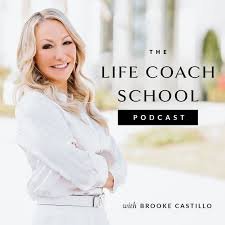Chocolate Addiction to self awareness- A Journey to Freedom
For as long as I can remember, I’ve thought I was fat. Looking back at old photos of myself as a child, I can see that I was a perfectly healthy size and weight. I always loved chocolate—I couldn’t get enough of it. Being sent to the shop for my mum and being told to “get yourself something for going” was always a joy.
My mum was slim, built very differently from me. I take after my dad’s side of the family—short and stocky. I’m sure there’s some Viking DNA there! I grew up watching my mum diet and complain about her weight. Comparing my “short and stumpy” build to her slimness, I felt inadequate. If she wasn’t good enough in her own eyes, how could I be in comparison?
I’m not blaming her. She grew up in a world where a woman was often valued by the man she married, and being slim and beautiful was her currency. That message was inevitably passed down.
As a teenager, my love for chocolate and cakes only increased. Combine that with the freedom of having lunch money and access to shops, and it became a dangerous combination. Very little “real food” was bought—just a soup from City Bakeries and the rest spent on cakes and sweets. The pounds soon piled on, and along came the self-loathing. Sugar became a way to numb teenage angst and the pain of comparing myself to girls with long legs, tanned skin, and slim figures. Overlooked by crushes, I often felt invisible, like so many teenagers do.
I went on my first diet at 15, not long after I started working. After breaking down in tears when nothing fit me, my mum, meaning well, offered her advice. Diet milkshakes—chocolate flavour, of course—as meal replacements. It didn’t take long for me to start having them alongside Mars bars. More loathing followed, and I tried to make myself vomit after eating. I truly thought bulimia was the answer, but I just couldn’t do it—it was too much like hard work. More shame.
Years of yo-yo dieting followed. Boyfriends would comment; one even said I’d be really good-looking if I was slimmer. At 19, I found some success after taking up swimming regularly with friends. One day I
Noticed that the weight had disappeared. It was like a dream. People started to notice. Friends marvelled, and my mum was ecstatic—she was never prouder of me than when I was slim. I could wear clothes I’d only dreamed of, and it felt amazing.
Around this time, I met Steven and fell head over heels in love. The only problem? Steven loved food as much as I did. We were living our best lives—eating out, having late-night snacks, partying, and drinking. The pounds crept back on, but Steven didn’t care—he loved me no matter what size I was.
Lovely, yes, but I didn’t love myself. The cycle of weight loss and gain followed me through parenthood, my twenties, and my thirties. I tried every diet—counting points, sins, carbs, calories. Cabbage diets, Atkins, you name it. Some worked, some didn’t. Steven joined in too, sharing the same struggle.
In my mid-40s, my weight reached its highest. The extreme chocolate intake was affecting my health—headaches, bad skin, lethargy, and migraines. Some days I could t get out of bed, it was like a chocolate hangover, but I couldn’t stop, no matter how much I promised myself. The shame and self-loathing were intense. Why was I doing this?
I was aware that my two young daughters were watching me. So I secretly gorged on family-sized bags of Minstrels and multiple bars of chocolate at a time, sneaking the kids’ sweets when they were in bed. The more stressed I became, the more chocolate I needed. I couldn’t see a way out.
One day, while scrolling through Facebook, an algorithm, clearly well aware of my addiction, showed me a video of a lady called Brooke Castillo from The Life Coach School. She talked about weight loss in a way I’d never heard before, offering free podcasts. Intrigued, I listened.
The first podcast was about urges and how we don’t need to respond to them. They won’t kill us—they’re just uncomfortable emotions and will pass. Brooke talked about learning to feel hard emotions instead of buffering with food. This was a new concept to me.
I stopped eating chocolate and started eating three meals a day. I learned to recognise when I was full and to wait until I was actually hungry to eat. The more I practised, the easier it became. I realised that my constant food thoughts were distractions from stress. With less focus on food, diet and loathing my mind had space for other things.
In my mid-40s, I felt better than I ever had before. Not just because I was at a healthy weight, but because I was mentally healthy too. I was more confident than ever.
So when I discovered Bryan Post’s work, it wasn’t the first time I’d encountered ideas about emotional regulation. I was already open to learning about how emotions impact behaviour.
Don’t get me wrong—I’m not “cured.” Stress and fear can still pull me back into old habits, but I bounce back much quicker now. I no longer diet or count calories. I eat when I’m hungry and enjoy treats occasionally, but I try to only do this when planned, not out of cravings or urges.
I often wonder if I’d have had the confidence to run my first workshop if I hadn’t felt so good about myself at the time. Would I have stood up in front of people feeling overweight and self-conscious? Probably not. Which leads back to the realisation that if I hadn’t had this struggle I would nt be where I am now.
To this day I recommend Brooks podcasts. Her work is extremely powerful.
https://podcast.app/the-life-coach-school-podcast-p5570/?utm_source=ios&utm_medium=share


